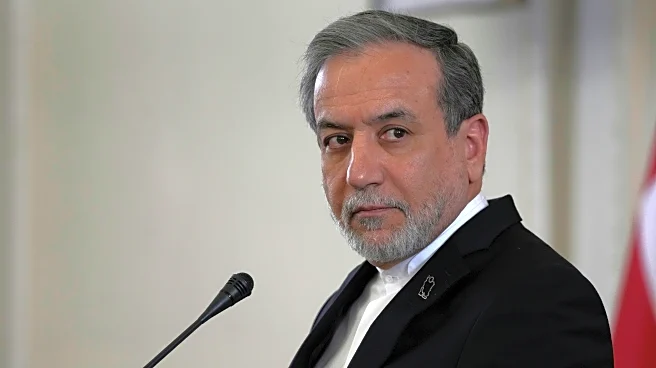What's Happening?
Japan and South Korea have taken significant steps to improve their bilateral relations, marked by a historic summit between South Korean President Lee Jae-myung and Japanese Prime Minister Shigeru Ishiba. This meeting resulted in the first joint statement in 17 years, focusing on cooperation in artificial intelligence, trade, and denuclearization of the Korean Peninsula. The summit also announced a joint task force to address shared challenges such as aging populations and declining birth rates. This diplomatic thaw comes amid a backdrop of regional tensions, particularly concerning China's military activities near Taiwan and North Korea's nuclear ambitions. The summit reflects a strategic pivot by both nations as they navigate complex relationships with the United States, where President Trump's unpredictable foreign policy has introduced new uncertainties.
Why It's Important?
The improved relations between Japan and South Korea are crucial in the context of regional security and economic stability. Both countries face the challenge of balancing their economic ties with China against the backdrop of U.S. demands and President Trump's transactional diplomacy. The summit's outcomes could lead to stronger regional cooperation, potentially mitigating the impact of U.S. tariffs and trade policies that have affected key industries in both nations. Additionally, the collaboration on denuclearization efforts is significant given North Korea's growing nuclear capabilities and its ties with Russia. The strengthened partnership may also serve as a counterbalance to China's influence in the region, providing a united front in addressing potential conflicts, such as those involving Taiwan.
What's Next?
The future of this renewed partnership may hinge on the political stability within Japan, as Prime Minister Ishiba faces domestic pressure to resign following his party's loss of majority in parliament. His potential resignation could impact the continuity of the cooperative spirit established at the summit. Both nations will need to maintain diplomatic momentum to ensure that the agreements reached are implemented effectively. Additionally, the evolving geopolitical landscape, including U.S. foreign policy shifts and China's regional ambitions, will continue to influence the dynamics between Japan, South Korea, and their allies.
Beyond the Headlines
The summit highlights the broader implications of shifting alliances in the Asia Pacific region. The historical context of Japan's colonial rule over Korea adds a layer of complexity to their relationship, making the recent diplomatic progress noteworthy. The evolving U.S. role in the region, particularly under President Trump's administration, raises questions about the reliability of American security guarantees. This uncertainty may drive Japan and South Korea to seek greater self-reliance and regional partnerships, potentially reshaping the strategic landscape in East Asia.










